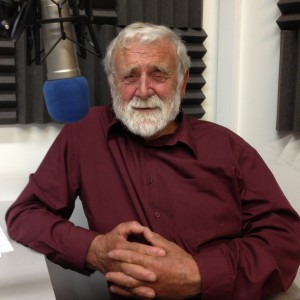
The essence of ecology is that it is all around us.
Prof Kath Dickinson is a plant ecologist at the University of Otago. She has broad interests particularly in plant-animal interactions. We talk with her about the science of ecology, and the role of people in ecological systems.
Talking points
It’s always a good idea to be very grounded in getting your feet wet.
I’m very glad I started with geography – the breadth can lead you in multiple directions.
Ecology is the study of interactions.
Ecology is a complex science, but that doesn’t mean that we can’t try to understand it. For me, ecology is inclusive of people.
It is easy to think in the linear way, but complexity means thinking in a non-linear.
We can think of a community as a spider web, hugely complex and very strong in some directions, but easily disrupted in others – by fast and slow disruptions.
If we look at ecosystems, there aren’t boundaries, but considering scale helps, we can say whether we are talking at scale of tree, or forest, or country level, or ocean level.
Ecologists as a field tends to attract people who are attracted to complex thinking, who are able to multitask – thinking about things across scales and in a non-linear fashion.
The term ecology is being taken widely…as a sense of understanding interactions, with respect to can we discern some patterns, some sense out of it. And if we can’t…what is the role of chaos?
That in New Zealand and Australia people are considered separate to the system, even in Australasian ecological science, probably represents the colonisation history…despite the integrated worldview of the indigenous peoples. But now we are increasing working with a message of integration – from mountains to the sea.
Social ecology is a recognition of the role of people in the system.
I talk with students about a play on words: a part from the system – two words – and apart from the system, one word. The writings stemming from the colonial, Christian ethic uses one word: apart from the system. The writings of sustainability, resilience, adaption, the ecosystem services approach all show a move to a part of the system.
(Can we describe the essence of a functioning ecosystem in terms that can be reduced to money?) In some situations, its a tightrope we walk, what economic value does one put on beauty? what economic value does one put on spiritual enrichment? what economic value does one put on a Cromwell chafer beetle?
We are starting to recognise the value of ecosystems…wetlands for example.
(But does this reinforce idea that nature is there for us to exploit?) If we look at the whole planet as a system, Gaia and the moon landings…ecologists might want to talk about integrating ecology with economics
Scale…whether timescale or spatial scale, getting understanding…means understanding scale. Be very aware of what question I’m asking, match the question to the scale. Not one scale fits every problem?
(Does ecology have an inherent ethics?) As a science yes. But it doesn’t necessarily require a care ethic.
Ecology is a continuum to sustainability. A broad philosophical debate.
As humanity becomes increasingly urbanised, the connection to nature becomes more distant. So we need an appreciation of natural history, a positive relationship with nature, rather than a fear or a distance.
Climate change is the biggy, but there are very rapid changes in land cover and oceans.
The rapidity of change is of immediate concern, this is not to dismiss the important and complexity of climate change, but the very rapid phase shift with systems around the world, much like the spider’s web analogy – it easy to destroy a spiders web, but try building it back up again – it takes time, even if it is possible.
There are several elephants in the room: history (decades, centuries, evolutionary) and often we don’t know that, what we see is what we can measure – usually 20 years if we are lucky…the other elephants: market forces; how particular decisions are affected by literal downstream effects – we need integrated land policy.
(Activist?) Out there waving a board saying no to nuclear power? No, but there people who are proactive in the sense of caring about whether it is a hydroelectric dam, or dirty rivers, or the quality of our soils. But as a scientist its a tightrope over maintaining credibility as a scientist and being out there wanting to make a difference. So endeavoring to make a difference.
(Motivation?) Endeavouring to make a difference. If you gather a group of people together to solve a complex problem, and you want to make a difference, it’s not the collective IQ you have in the room, it is the diversity that you have in the room. So there’s a motivation in listening to different perspectives, and valuing perspectives, which isn’t to walk away from fact that decisions can be difficult to make, and not everybody might agree, but the chances are that the diversity will lead to a more robust outcome.
(Challenges?) New courses starting. Interesting challenges of funding.
(Advice?) As individuals we can pull together to make a difference.


